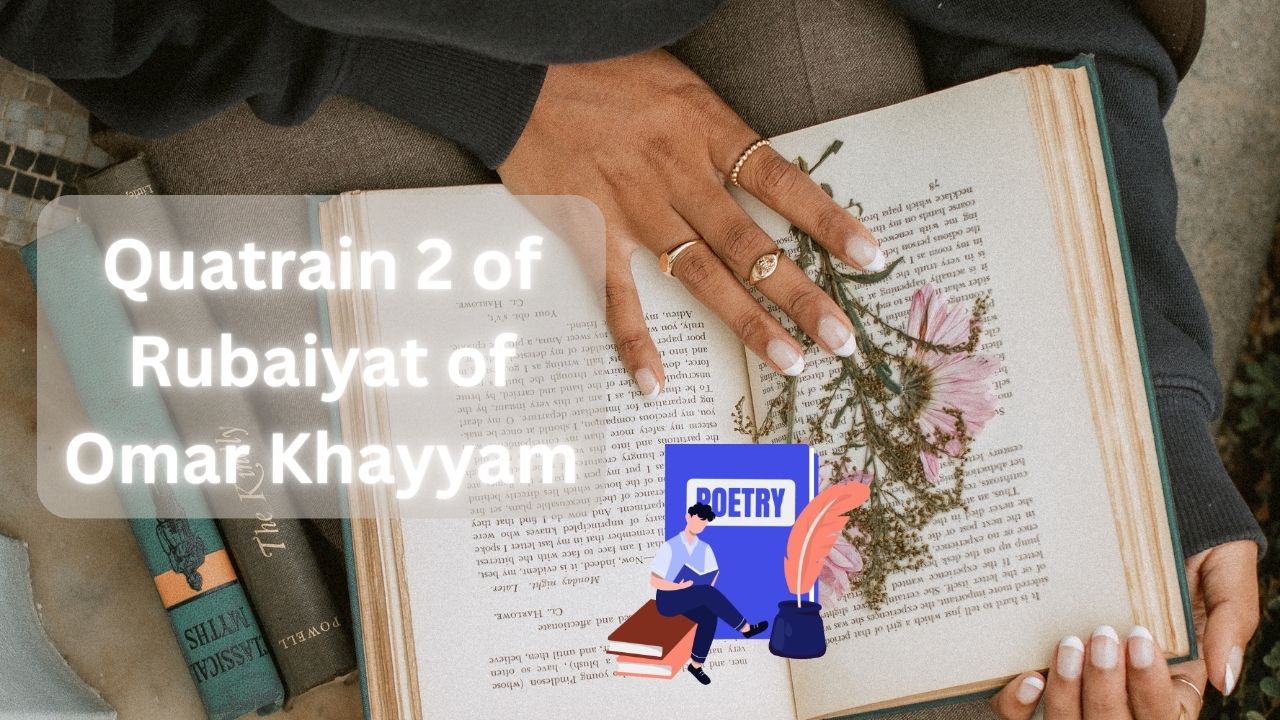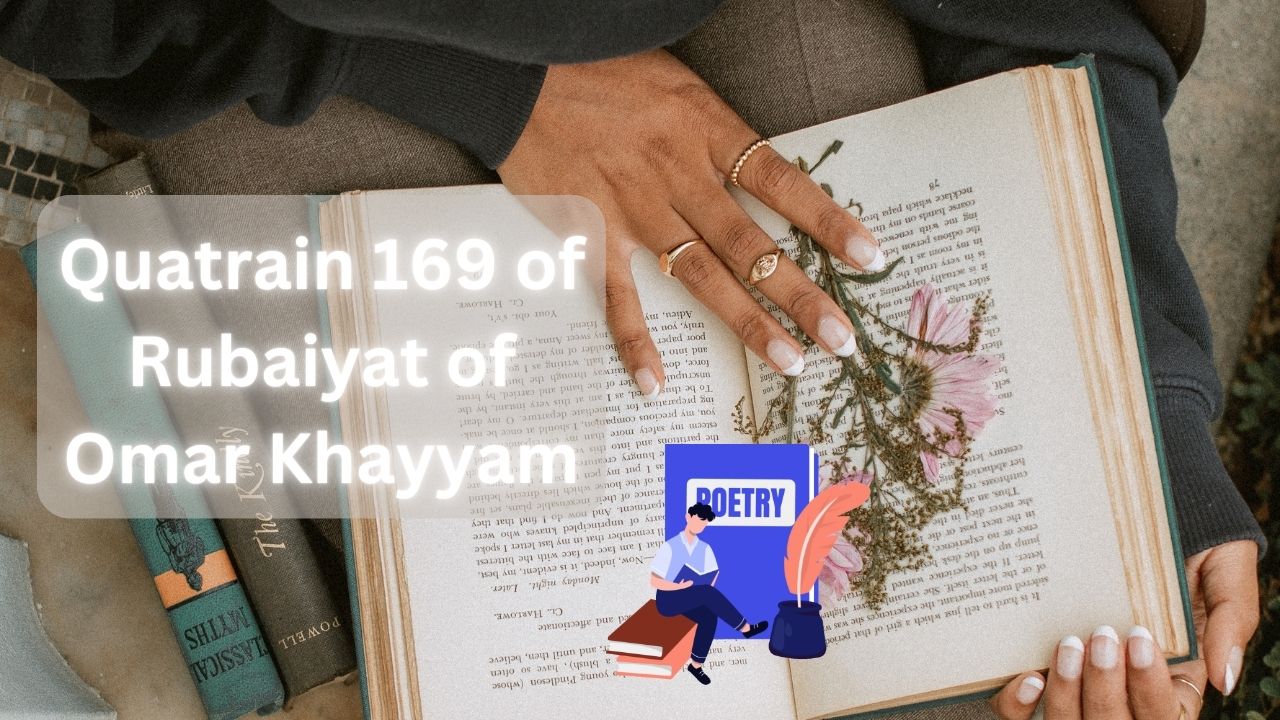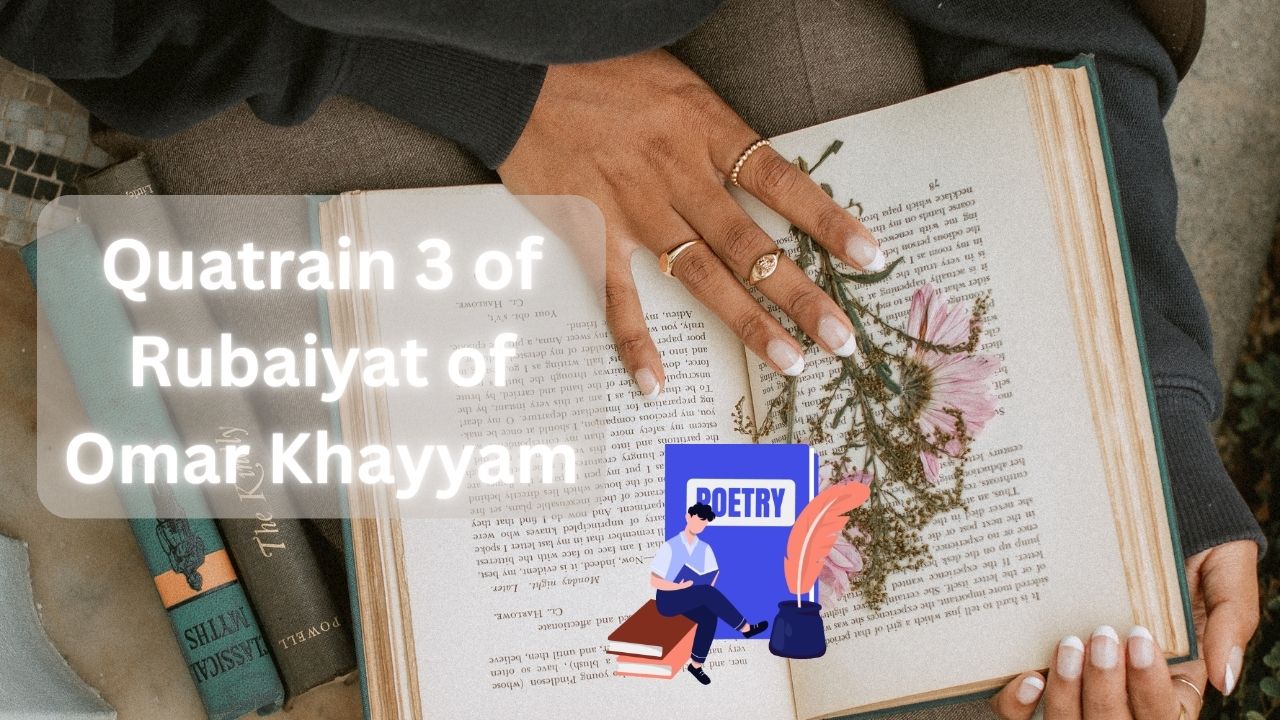Robaei number 2 from Khayyam. First its original poem in Persian and then its translation to English:
چون عهده نمی شود کسی فردا را
حالی خوش دار این دل پر سودا را
می نوش بماهتاب ای ماه که ماه
بسیار بتابد و نیابد ما را
Since no one can guarantee tomorrow,
Cherish this heart full of sorrow today.
Drink wine in the moonlight, O moon, for many a moon
Will shine but will not find us again.
Since no one can guarantee or be the surety for tomorrow, and no one knows what will happen,
Amid desires and hopes, you should beautifully maintain the present, O fair-faced one,
For when the moon shines, if you are not in the present, you will not receive its glow,
And the moon will shine many times, but like you, traveling in the future or the past, you will not receive the divine message and awareness, that same heavenly wine.
Khayyam most beautifully addresses the subject of mind control and possessing this unruly horse,
And he himself was very alert in receiving these awarenesses and inspirations, for he received many inspirations in the field of sciences.
As we know, the basis of all sciences is inspiration; for example, many apples have fallen from the tree, but one of these countless apples fell before Newton, and he discovered the law of gravity.
Khayyam seems to be conversing with someone whose gaze is fixed on tomorrow, asking “What will happen tomorrow?” He addresses this person and says: "No one has committed to seeing tomorrow (the future). So why think so much about it? Does Khayyam want to deter humans from thinking about the future? Not at all. So why does he speak thus? He explains in the continuation of his speech that you live in the present moment. By saying “tomorrow, tomorrow,” you also let today slip away, and thinking about this uncertain future causes the destruction of both the present and the future. For this reason, your sorrow becomes not one but two, and mixes with regret. If you grasp the “present,” you will be pleased and cheerful for not having wasted time in vain. Take a look at your today and tonight. You have spent the day pleasantly, and a moonlit night has arrived. What could be more delightful than spending this night well, too? In this beautiful and dreamy night, drinking wine and being merry. For if you do not, you will also lose this night, and the moon will rise and set so many times; it will come and go (time will pass) that life will come to an end. In truth, he wants to say that we sacrifice good conditions obtained for an uncertain time. In this poem, tomorrow is the opposite of the present (today). The internal form of the poem is so interwoven that it does not let the listener rest for a moment. The first and second lines are connected with the words tomorrow and present (today), and being happy in the second line is stitched with drinking in the third line. The moon in the third line is connected with turning in the final line. The “first moon” is a metaphor for a beautiful and good person and has a complete pun with the “second moon.” This quatrain also has a very strong internal form that the words “tomorrow,” “present,” “being happy,” “drinking,” “moon,” and “turning” make it cohesive, and the listener enjoys it. The pun of “moon” and “us” also enriches the music. These horizontal and vertical connections multiply the pleasure of the poem.





